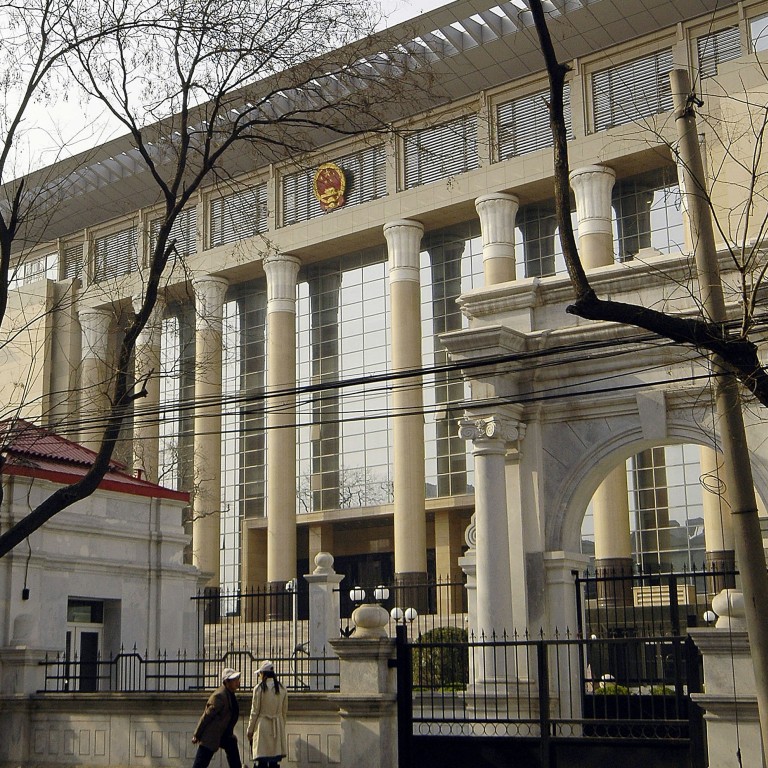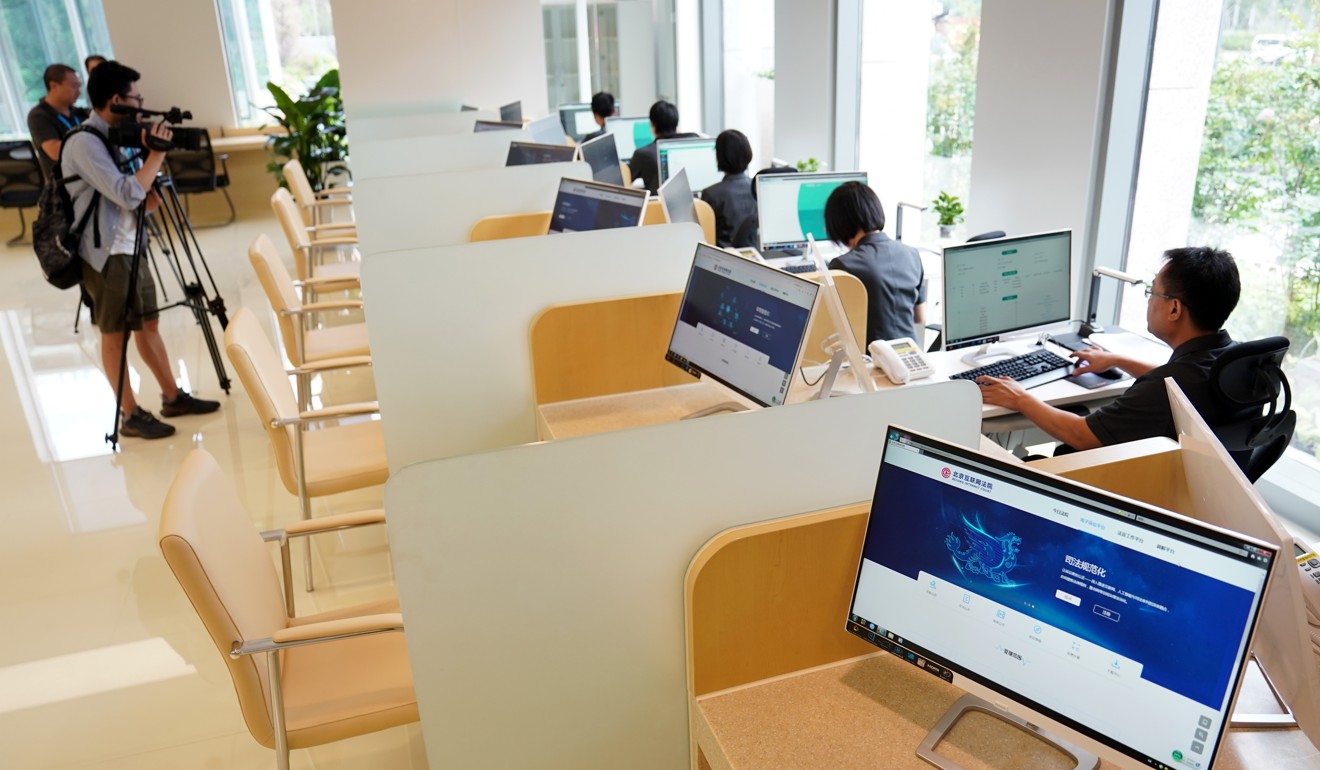
China launches appeal court for intellectual property right disputes
- New body, established by Supreme Court, will handle legal wrangles involving everything from new plant species to integrated circuit boards
- Court’s creation a necessary part of China’s development, and nothing to do with the trade war, boss says
China’s first ever appeal court for intellectual property disputes – a major bone of contention in the ongoing trade war with the US – will open for business in Beijing on Tuesday, the nation’s top court said on Saturday.
The new body would handle cases that demanded “highly technical expertise”, Luo Dongchuan, vice-president of the Supreme People’s Court, which established the new body, told a press conference in the Chinese capital.
The creation of the appeal court was the latest effort to protect intellectual property rights, inspire innovation and improve the business environment, said Luo, who will oversee its operations.
China drafts law protecting foreign intellectual property and prohibiting forced technology transfer
Individuals and companies would be able to use it to appeal against the rulings of other courts in cases involving patents, new varieties of plants, the design of integrated circuit boards and computer software, and monopolies, among other things, Luo said.
It would not handle cases concerned with unfair competition, trademarks or commercial secrets, he said.

The protection of intellectual property rights has been a key issue of the trade war, with the US accusing China of rampant IPR theft, often in the form of forced technology transfers. US President Donald Trump has repeatedly lashed out at Beijing’s lax protection laws, saying they had cost the United States up to US$600 billion a year.
Will China’s new forced technology transfer law satisfy US concerns?
The announcement of the new appeal court comes as trade negotiators from the two countries are preparing to meet in Beijing, but Luo dismissed suggestions its creation was influenced by Washington.
“China has for many years followed international regulations and international treaties to protect intellectual property rights,” he said. “So it’s not because of the demands by foreign countries that we’ve stepped up protection [efforts]. This is an integral part of our own development.”
Beijing has always argued that it fulfils the commitments it made when joining the World Trade Organisation in 2001 and puts great effort into protecting the intellectual property rights of foreign firms. But IPR protection remains a major concern for foreign companies operating in the country.
“There have been improvements in IPR protection over the past two decades, but that’s not enough given the fact that China is now the world’s second-largest economy,” said a European diplomat who is involved in intellectual property protection but asked not to be named.
China to host US trade talks in Beijing in early January
Zheng Wanqing, a professor at Zhejiang Gongshang University who specialises in IPR protection, said that a national appeal court could help to standardise the rules for handling IPR cases and in doing so ease the concerns of foreign businesses.
“Many of the complaints by foreign companies are the result of different standards at different local courts,” he said. “A national appeal court could help to consolidate those standards, which would protect foreign companies from local protectionism.”
The new court is not the only move Beijing has taken to improve IPR protection recently. Last week, a draft of a new foreign investment law, which outlaws forced technology transfers, received its first review by the Standing Committee of the National People’s Congress, China’s legislature.

